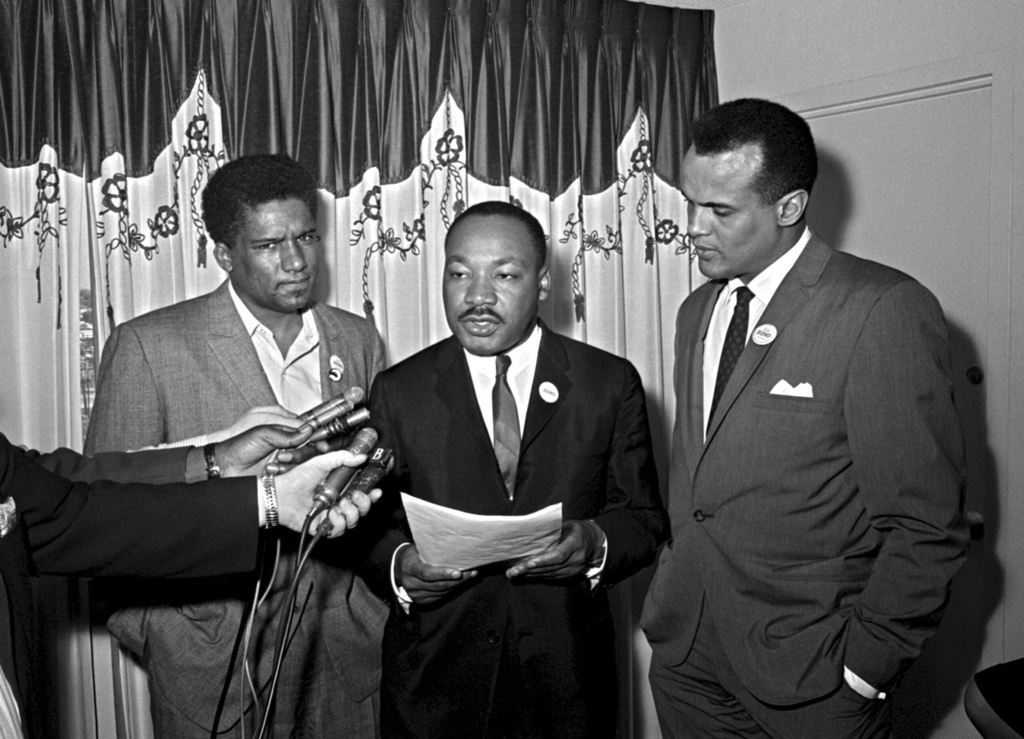
1964 Nobel Peace Prize winner Martin Luther King Jr. would have been 95 on Jan. 15.
“But traces of bigotry still mar America. So, each year on Martin Luther King Day, let us not only recall Dr. King, but rededicate ourselves to the commandments he believed in and sought to live every day: Thou shall love thy God with all thy heart, and thou shall love thy neighbor as thyself.”
– President Ronald Reagan in a 1983 speech before he signed the bill making the birthday of Martin Luther King Jr. a national holiday. The holiday was first observed in 1986 and not officially observed in all 50 states until 2000.
George Washington, Abraham Lincoln and Cesar Chavez are the only other Americans to have had their birthdays observed as a national holiday.
A few other notables:
Birth name
King was born Michael King Jr. on Jan. 15, 1929. In 1934, his father, a pastor, traveled to Germany and became inspired by Protestant Reformation leader Martin Luther. As a result, King Sr. changed his own name as well as that of his five-year-old son.
First attempt on his life
On Sept. 20, 1958, King was in Harlem signing copies of his new book, “Stride Toward Freedom,” in Blumstein’s department store when he was approached by Izola Ware Curry. The woman asked if he was Martin Luther King Jr. After he said yes, Curry said, “I’ve been looking for you for five years,” and she plunged a seven-inch letter opener into his chest. Surgeons later told King that just one sneeze could have punctured the aorta and killed him. King issued a statement affirming his nonviolent principles saying he felt no ill will toward his mentally ill attacker.
Worker’s rights
King had come to Memphis in April 1968 to support the strike of the city’s Black garbage workers, and in a speech on the night before his assassination, he told an audience at Mason Temple Church: “Like anybody, I would like to live a long life.”
His mother was assassinated, too
On June 30, 1974, as 69-year-old Alberta Williams King played the organ at a Sunday service inside Ebenezer Baptist Church, Marcus Wayne Chenault Jr. rose from the front pew, drew two pistols and began to fire shots. One of the bullets struck and killed King, who died steps from where her son had preached nonviolence.
National Civil Rights Museum
The Lorraine Motel where James Earl Ray assassinated King on April 4, 1968, is a complex of museums that trace the civil rights movement in the U.S. from the 17th century to the present.
You can learn more about the National Civil Rights Museum here.
The King Center in Atlanta, founded in 1968 has many online resources here.
Building the National Monument
You can learn more about the MLK National Monument here.
U.S. views on racism
An October 2021 survey by the Pew Research Center shows that overall, about two-thirds of U.S. adults (65%) say that when it comes to racism against Black people in our country today, racism by individual people is a bigger problem than racism in our laws.
Percentage who say that, when it comes to racism against Black people in our country today, the bigger problem is …
You can find the August 2022, Pew Research Center story “Black Americans Have a Clear Vision for Reducing Racism but Little Hope It Will Happen” here.
Sources: History.com,The Pew Research Center, The Associated Press, Gallup, CNN, Time, The American Presidency Project, UCSB, The Martin Luther King Jr. Research and Education Institute at Stanford University
